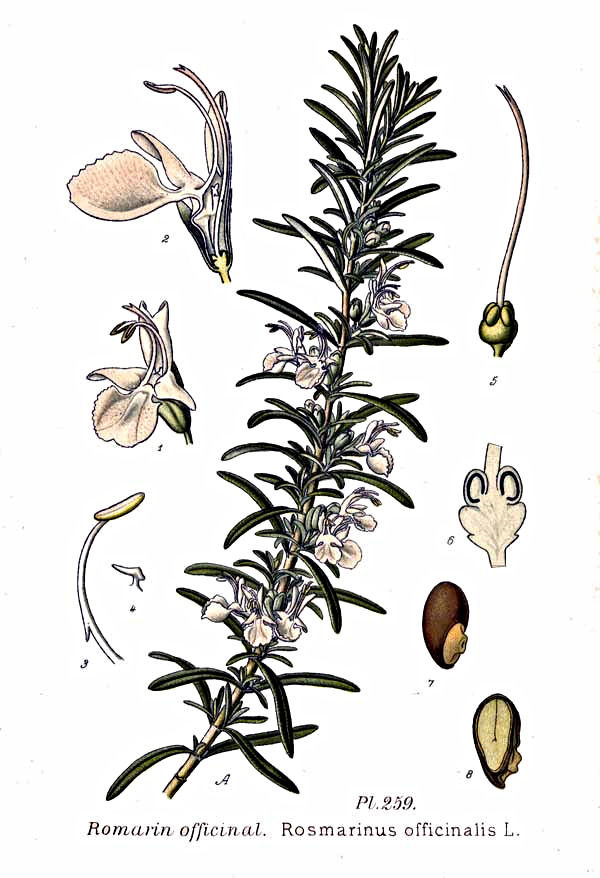





Rosemary
A small evergreen shrub, is native to the Mediterranean and is a staple of French and Mediterranean cuisine; it has a tea-like aroma with a piney flavor. When compared to other plants it has a higher amount of total phenolics and flavonoids, making it one of the top antioxidant rich plants that can naturally help fight free radicals.
Rosemary's name is rooted in legend. The story goes that during her flight from Egypt, the Virgin Mary draped her blue cloak on a Rosemary bush. She then laid a white flower on top of the cloak. That night, the flower turned blue and the bush was thereafter known as the "rose of Mary". Greeks, who wove Rosemary wreaths into their hair, believed Rosemary strengthened the brain and enhanced memory. It was also known as a symbol of fidelity. In the Middle Ages, Rosemary was used medicinally and with wedding ceremonies. The bride would wear a rosemary headpiece and the groom and wedding guests would all wear a sprig of rosemary. From this association with weddings, rosemary was thought to be a love charm. In parts of Europe and Australia, it was a symbol of remembrance during war commemorations and funerals. Mourners would throw it into graves as a symbol of remembrance for the dead. In Shakespeare's Hamlet, Ophelia says, "There's rosemary, that's for remembrance." (Hamlet, iv. 5.)
Rosemary Leaf is high in essential nutrients and vitamins, such as Vitamin A, Vitamin C, Vitamin B6, Folate, Thiamin, Magnesium, Iron, as well as several phenolic compounds. Phenolic compounds found in plants have antioxidant effects, meaning they react with and capture dangerously reactive cells called free radicals before the radicals can react with other biomolecules and cause serious damage, like cancer. There are different types of phenolic compounds with antioxidant properties, one of them being flavonoids. Quercetin and Luteolin are a few of the key flavonoid antioxidants found in the rosemary plant. Free radical damage can run rampant amongst skin cells; which makes skin, look duller, less toned, and may cause wrinkles. However, the flavonoid antioxidants in rosemary may be able to counteract some of that damage, thereby encouraging the regeneration of healthy new skin cells.
-
Used as a whole raw ingredient not as an essential oil
-
Rich in vitamins, minerals and flavonoids
-
Contains antibacterial properties
-
Supports a healthy immune system
-
Preservative Free
-
USDA certified organic
-
Certified Kosher
References:
1. opensciencepublications.com
3. webmd.com